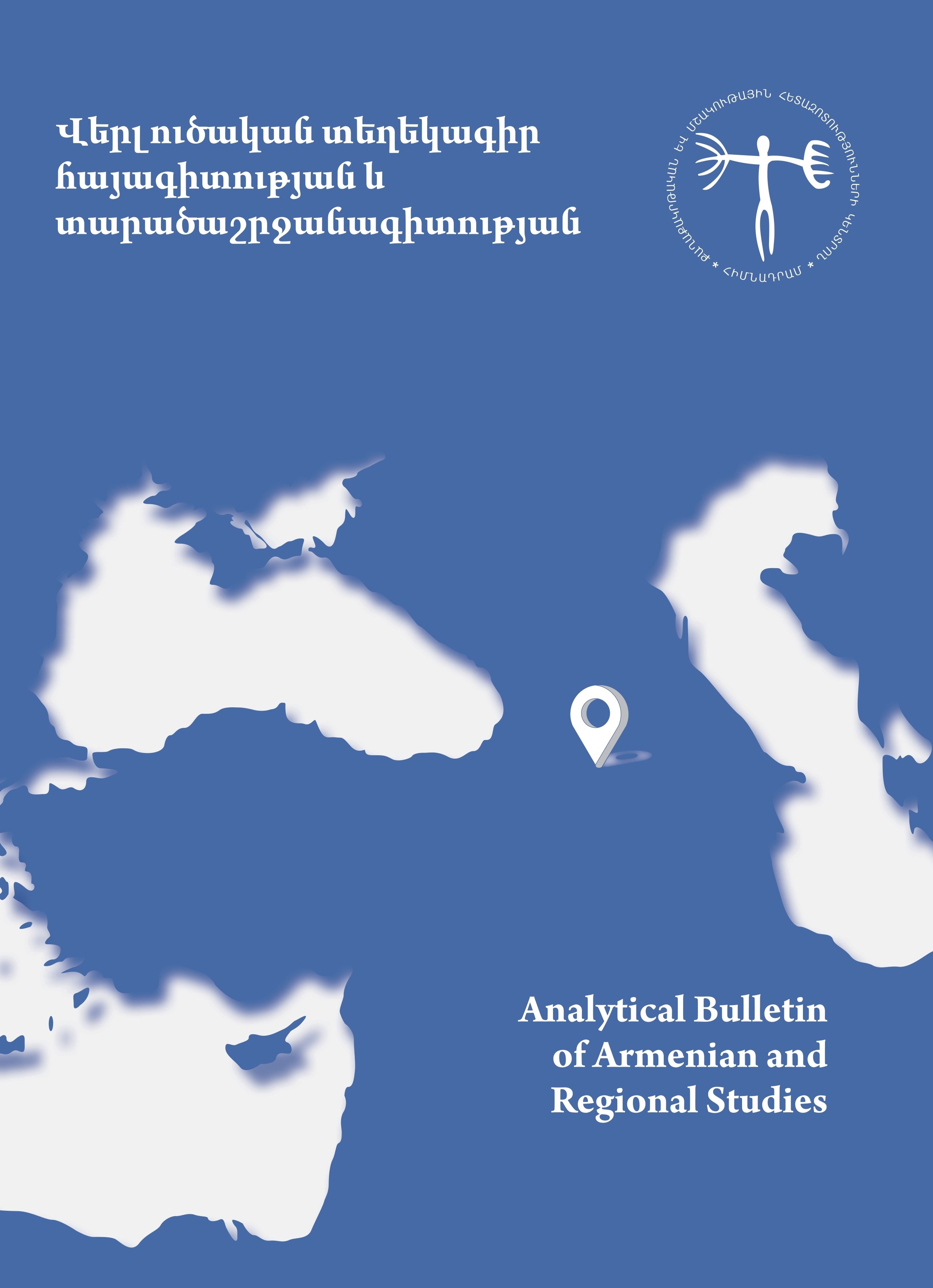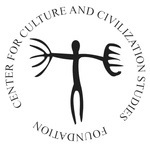NATIONAL SECURITY OF THE ISLAMIC REPUBLIC OF IRAN
Keywords:
Iran, national security, Islamic ideology, Iran-ArmeniaAbstract
The national security strategy of a given country is based on its national interests and is defined by taking into consideration geographic, historical, political and economic aspects of its past and present. The same is true about the Islamic Republic of Iran. However, what distinguishes it from the national security strategies of other countries is the religious ideology that shapes the “nation” and as a result, its “national security.” Although IRI has never produced available documents of its National security strategy or Foreign policy doctrines, the history of the country’s political behavior and current steps by the Iranian political and military actors provide a possibility to draw the main characteristics of its national security assumptions. In other words, “Iran’s National security policy behavior must be understood in its discursive context.”1 The national security strategy of Islamic Republic of Iran consists of different, sometimes contradictory assumptions of self-identity. Some researchers believe that Iran’s current religio-political system constructs and maintains several identities. Namely:
- Iranian identity,
- Islamic identity,
- Shia identity, and
- Revolutionary identity.2
References
ManshourVarasteh, “Understanding Iran’s National security doctrine”,UK, 2013, p.21 (01.05.2017)
Some researchers emphasize the “Persian” not “Iranian” identity, J .MatthewMclnnis, “The Future of Iran’s security Policy”, AEI, 2017, p.7, available at https://www.aei.org/wpcontent/uploads/2017/05/The-Future-of-Irans-Security-Policy.pdf (10.07.2017)
The name of the country “Islamic Republic of Iran” by itself expresses markers of two identities; the origins of other two are anchored in the constitution of the country.
“Constitution of the Islamic Republic”, Encyclopedia Iranica, http://www.iranicaonline.org/articles/constitution-of-the-islamic-republic (02.05.2017)
“Islam in Iran vii. The concept of Mahdi in Twelver Shi’ism”, Encyclopedia Iranica,http://www.iranicaonline.org/articles/islam-in-iran-vii-the-concept-of-mahdi-intwelver-shiism (02.05.2017)
Kevjn Lim, “National security decision-making in Iran”, Open Briefing: The Civic Society Intelligence Agency, 2015, p.3 (06.05.2017)
Iranian president-elect Rouhani promises better relations with west https://www. theguardian.com/world/2013/jun/17/iran-hassan-rouhani-promises-moderation (10.06.2017
ManshourVarasteh, “Understanding Iran’s National Security Doctrine”, UK, 2013
Daniel L. Byman “Iran’s security policy in post-revolutionary era”, RAND, 2001, p.33
Mohammad Nuruzamman, “What comes next for Iran’s defense doctrine”, available at http://nationalinterest.org/feature/what-comes-next-irans-defense-doctrine-18360 (01.08.201
“President Rouhani describes Iranian military doctrine as "defensive"”, available at http://english.irib.ir/programs/political/item/208122-president-rouhani-describes-iranianmilitary-doctrine-as-defensive (02.07.2017)
“Tension’s in Iran’s national security strategy”, available at http://reutinstitute.org/Publication.aspx?PublicationId=1769 (03.07.2017)
Mohammad JavadZarif, “What Iran really wants: Iran’s Foreign policy during Rouhani era”, Foreign Affairs magazine, May/June 2014 Issue, available at https://www.foreignaffairs.com/articles/iran/2014-04-17/what-iran-really-wants(04.07.2017)
Annie Tracy Samuel, “ Perceptions and narratives of the security: The Iranian revolutionary Guards Corps and Iran-Iraq war”, Harvard Kennedy School, 2012, p. 12, available at http://www.belfercenter.org/sites/default/files/legacy/files/ samuel_perceptions.pdf (04.07.2017)
Statement by Mohammad Javad Zarif, Munich Security Conference 2017, 19 February 2017, available athttps://www.securityconference.de/en/media-library/munich-securityconference-2017/video/statement-by-mohammad-javad-zarif-1/ (02.07.2017)
Annie Tracy Samuel, “ Perceptions and narratives of the security: The Iranian revolutionary Guards Corps and Iran-Iraq war”, Harvard Kennedy School, 2012, p. 8, available at http://www.belfercenter.org/sites/default/files/legacy/files/ samuel_perceptions.pdf (04.07.2017) 18http://www.leader.ir/fa/speech/9182/
ای-هسته-دانشمندان-ديدار-در-بيانات) 05.08.2017)
Lionel Beahner, “Iran’s multifaceted Foreign Policy”, https://www.cfr.org/backgrounder/irans-multifaceted-foreign-policy(05.08.2017)
http://en.farsnews.com/newstext.aspx?nn=13930624001016 (07.08.2017)
https://obamawhitehouse.archives.gov/node/328996 (03.07.2017)
In line with “death to Zionist Regime”
Mohammad JavadZarif, “What Iran really wants: Iran’s Foreign policy during Rouhani era”, Foreign Affairs magazine, May/June 2014 Issue, available at https://www. foreignaffairs.com/articles/iran/2014-04-17/what-iran-really-wants (15.06.2017)
Islamic Republic of Iran Constitution, http://www.iranonline.com/iran/iraninfo/government/constitution.html (02.05.2017)
Rouhani speech at the UN, September 22, 2016, available at http://www.president.ir/en/95419wo (17.05.2017)
“The Iranian hostage crisis”, https://history.state.gov/departmenthistory/shorthistory/iraniancrises (03.05.2017)
“A conversation with Mohammad Javad Zarif”, https://www.cfr.org/event/conversationmohammad-javad-zarif (17.08.2017)
Ibid.
“Joint comprehensive plan of action”, https://www.state.gov/e/eb/tfs/spi/iran/jcpoa/ (01.05.2017)
Mohsen Milani, “Iran and Russia’s uncomfortable alliance”, Foreign affairs, 31.08.2016, available at https://www.foreignaffairs.com/articles/iran/2016-08-31/iran-and-russiasuncomfortable-alliance (12.06.2017)
His predecessor Ayatollah Khomeini has sent a special letter to late president of USSR Gorbachov condemning him in not giving special attention to the Islam and stressing that the problems of the USSR are because of the lack of special attention to the religion. For the text of the letter, see http://www.farsnews.com/newstext.php?nn=8510090317(02.06.2017)
Gareth Porter, “Rouhani's dual messages and Iran’s security strategy”, available athttp://www.middleeasteye.net/columns/rouhani-s-dual-messages-and-iran-s-securitystrategy-1712351174 (14.06.2017)
It’s worth mentioning the statement of Minster of Defense of IRI, Hossein Dehghan about Russia’s “betrayal of trust”, https://www.youtube.com/watch?v=DxPA2nTAHak (05.06.2017)
ElahehKoolaee, MandanaTishehyar, “The new regionalism between Iran and Russia in Eurasia”, Discourse: An Iranian Quarterly, Vol. 11, Nos. 1-2, Fall 2013-Winter 2014, pp. 49-66 (12.06.2017) 36http://www.presstv.ir/Detail/2016/07/31/477806/Iran-Turkey-Ali-Akbar-Velayati-RizaHakan-Tekin (10.06.2017)
Ayatollah Khamenei: “There is terrorism in Turkey”, https://www.youtube.com/watch?v=3WmEcUEbV0I (05.06.2017)
Amir Hossein Yazdanpanah, “Coup de tat in Turkey and deciphering Iran’s positions”, http://khorasannews.com/newspaper/page/19304/3/537348/0 (12.06.2017)
“Regional rival Iran expresses for Turkey over coup attempt”, http://www.reuters.com /article/us-turkey-security-iran-reaction-idUSKCN0ZW0LM (22.06.2017)
“Turkey’s Top Trading Partners”, http://www.worldstopexports.com/turkeys-top-importpartners/ (18.06.2017)
http://www.defenddemocracy.org/content/uploads/documents/FDD_RGE_Iran_Turkey_ Economic_Relations.pdf ( 23.06.2017)
KennetzKatzman, “Iran’s Foreign and defense policies”, Congressional research service, June 15, 2017, p.39, https://fas.org/sgp/crs/mideast/R44017.pdf (01.07.2017)
Iran’s armed forces Chief of Staff , Major General Mohammad Bagheri visited Turkey on 15 of August and had meetings with his Turkish counterpart, general HulusiAkar, president RecepTayipErdoghan and Defence minister NureetinCanikli, http://www.irna.ir/fa/News/82632837 (02.07.2017)
NassibliNasib L., “Azerbaijan- Iran Relations: Challenges and Prospects.” Harvard Kennedy School, November 30, 1999, http://www.belfercenter.org/publication/azerbaijaniran-relations-challenges-and-prospects-event-summary (14.07.2017)
For secular Azerbaijan the influence of Iranian Shiism is perceived as a potential threat to the state.
The 2017 Riyadh summit and its consequences are labeled as anti-Iranian both in and out of Iran.
“Armenia: Iranian president Rouhani holds bilateral talks with Sargsyan in Yerevan”, https://www.youtube.com/watch?v=RIjwD4DUWkU (19.05.2017)
http://www.president.ir/fa/97013 (08.07.2017)
Daniel Byman, ShahramChubin, AnoushirvanEhteshami, Jerold D. Green, “Iran’s security policy in the post-revolutionary era”, RAND Corporation, 2001, pp. 63 (08.07.2017)
SeyedMasoud Mousavi Shafaee, Hossein Mohammadi, “The role of energy in Iran-China relations”, Discourse: An Iranian Quarterly, Vol.11, Nos. 1-2, Fall 2013-Winter 2014, pp.67-86.( 04.08.2017)
KennetzKatzman, “Iran’s Foreign and defense policies”, Congressional research service, June 15, 2017, p.50 (01.07.2017)
IttThirarat, “Iran’s big Asian oil customers return”, Middle East Institute , August 23, 2016, http://www.mei.edu/content/map/irans-big-asian-oil-customers-return (18.07.2017)





